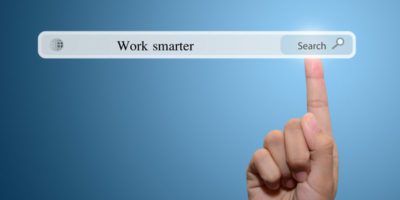Jeff Barth is Program Director of MARC (Men Advocating Real Change), an online learning community created especially for professional men who are committed to building inclusive workplaces. Jeff is an expert on engaging men, also providing external training, speaking about the MARC programme externally, alongside creating and expanding Catalyst’s engaging men programmes. He sits on Catalyst’s Diversity and Inclusion Advisory Council and has served on the Catalyst Canada Honours evaluation committee.

“…The feedback from members and our community has been nothing short of astounding. Men appreciate having a source to sound off ideas in, ask questions, collaborate with others, learn from role models, and explore ways to become engaged. Companies utilise us as a go-to-source for bridging the gap between awareness and action…”
Background to the MARC community and what prompted Catalyst to set it up
Through Catalyst research on engaging men, we have learned that men don’t always feel that there is a space for them to safely engage with each other, or with women, to tackle the issue of gender gaps in the workplace. There is little room to express concerns, discuss questions, or collaborate toward solutions.
Our member organisations typically focus solely on women’s experience in the workplace – and we’re all familiar with the resulting conundrum: the gender gap is seen then as a women’s issue, best addressed by women.
MARC (Men Advocating Real Change) is positioned to make change because men still hold the majority of high-level leadership positions in organisations. And, in order to achieve equality and inclusion in the workplace, we need to understand men’s gender experience, not just women’s.
This means allowing room for the exploration of bias in the workplace, and society at large, from the perspective of men and the connection of norms to everyday inequalities as related to men and women. MARC is a place for individuals to personally develop unique motivators that result in action. Most importantly, it’s a place for men to practice inclusive leadership behaviours without looking to women for solutions.
Why this is important
It can be challenging for men to recognise they are distinct culture that is often the dominant one in most organisations and that that culture impacts everyone’s behaviour. Like fish who never have to leave the fishbowl, we don’t see our own culture. We don’t recognise our own privilege and individuals may have made great sacrifices and overcome unique difficulties that may overshadow an awareness of privilege.
We also may believe equality was a rights issue resolved decades ago. We are surrounded by people like us, especially at work. We act as individuals believing we aren’t influenced by any group – certainly not other men. Many men further resist the notion that they are beholden to any group.
These male-associated norms (behaviours) become the organisation’s norms, especially for leaders. They are the criteria by which we hire, assess and promote everyone (men and women). We tend to hire and promote those who share similar behaviours and traits, thus reinforcing the norm (i.e. these male-associated behaviours).
Adding to the complexity, gender equity work has long been viewed as focusing just on women, largely bypassing or ignoring any examination of men and male behaviour. When men have been the focus, it has largely been to blame them for the systemic mistreatment. What gets lost is helping men and women understand men’s self-interest in shifting an organisation’s culture and gaining greater equity with gender.
Why men should care
The more important question to consider is the cost to us, as leaders of companies, as members of families and communities, nations, and economies, if we fail to provide equal opportunities.
As leaders of companies:
In Fortune 500 companies only 4.6% have a woman as CEO and only 16.9% of these companies’ board seats are held by women. Among G7 countries (Canada, France, Germany, Italy, Japan, and the US), only 21% of management positions are filled by women. This all is especially useful information when we consider solutions for a sluggish economy. It’s good business leadership to utilise to the fullest extent your talent pool.
Benefits to self:
For many men, our gender conditioning teaches and rewards us to go it alone, not ask for help, suppress emotion (except anger or frustration), advocate instead of inquire, avoid deep reflection in lieu of acting quickly to fix problems and, most importantly, to work hard and sacrifice.
Leadership improvement:
- Learn strategies to become a better, more effective leader in your community and industry.
- Develop skills that enhance team productivity and innovation.
- A chance to take action and serve as a role model to others.
- Research showed that the more employees feel ‘included’ the more they reported innovating on the job and being willing to help their colleagues (team citizenship). Employees who feel included go above and beyond their job descriptions.
Topics we cover
We explore diversity and gender equity from a variety of perspectives both inside and outside the workplace. We find our members are particularly interested in work-life, fatherhood, family and relationship, and values from the perspective of culture and different geographic areas.
Where our members are from
Members are from all over the globe, but particularly our members are located in North America, Western Europe, Australia and the Middle East.
Member feedback
The feedback from members and our community has been nothing short of astounding. Men appreciate having a source to sound off ideas in, ask questions, collaborate with others, learn from role models, and explore ways to become engaged. Companies utilise us as a go-to-source for bridging the gap between awareness and action.
Future plans for MARC community
We’re working on a great deal of new material and ways for men to engage in the coming year, but I’ll share one new way for men to engage on MARC.
In partnership with White Men as Full Diversity Partners (WMFDP), Catalyst has launched MARC Leaders, a six-month leadership program that fosters collaborative relationships among senior and emerging leaders who are committed to promoting workplace inclusion. The initiative enables participants to leverage the collective wisdom, experience, and influence of a cross-company network to enhance their own leadership effectiveness and catalyse change in their organisations.





